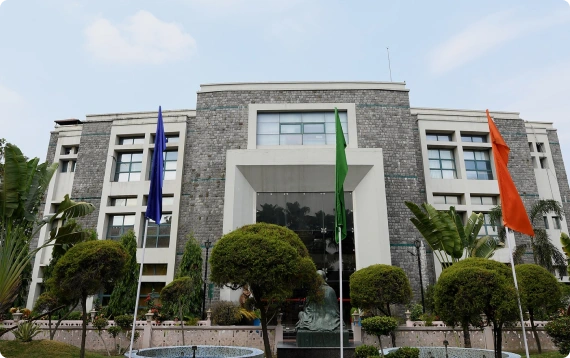What Does Full Stack Developer Mean
Quick adaptations to the ever-evolving technologies and the ecosystem of organisational requirements in an organisation need a full-stack developer with multi-tasking capabilities, domain knowledge, and practical skills to suggest and implement practical solutions in software application development.
The three layers in development that a Full-stack developer addresses are:
- Front end Presentation layer, which faces the end-user and needs specific technologies and language skills.
- Backend Logic layer, which has the logical data applications and no production of user interfaces.
- Sub-layer of data where data is assimilated, cleaned, read, deleted, created or updated through programming languages.
Who is a Full-Stack Developer?
An engineer is a full-stack developer when he multi-tasks and copes with solutions for databases, systems engineering, and servers and is also client-facing. Depending on project and client requirements, the stack depends on the application and could hence be categorised as a native, mobile, or web stack.
The technologies required are different for the various ends, layers, servers, etc. and a collection of such technological modules is called a stack. Thus full-stack technologies combine sets and subsets of technologies that work together and are in sync to produce the desired outcomes.
The full-stack developer's essential skills are flexibility and adeptness at and between all layers. The Full stack developer course skills include:
- Profile yourself on GitHub or SourceTree, which is essential for community learning.
- Coding skills for logical quantification and interpretations use CSS3, JavaScipt, and HTML5.
- The web architecture concepts of centralised and distributed networks, cryptographic hash functions, consensus, MVC, distributed ledgers convention theory, MVVM, document-view, G, bus and communication architecture are essentials.
- Frameworks and Platforms like Hyper Ledger, HashGraph, EOS, Ethereum, etc.
- Front-end languages, database relational procedural languages like C, OOPs, Python, JavaScript, C, R etc.
- Data Structures like Stack, Patricia and Merkle trees, Queues, advanced cryptography, Hedera HashMaps, LinkedList etc. Add in database knowledge and manipulation techniques.
- Backend languages like Nodejs, frameworks like Django, Flask, etc.
- Protocols like REST, HTTP and such.
- Enablers of Smart Contract like the Truffle suite installation and working on Windows and Ubuntu. Mac and such.
- Techniques in data storage like cloud storage.
- Methods in Cryptography like (KECCAK256, SHA256, etc.) hash functions, asynchronous digital-signature generating cryptography and more.
- Both ends and centralised web development, handling APIs, Dapps-based interactive GU interfaces, requests, and such.
- Smart Contracts Development network languages like Ethereum's Solidity, Viper, Chaincode, etc.
What career options are available for full-stack developers?
Full-stack web developers are able to use a range of technologies. They can therefore handle more facets of a project than the average developer because of this. They are therefore in great demand. Both client and server software can be developed by a full-stack Web developer.
Job Scope and Payouts:
Glassdoor claims the fresher salary range in India is 19 to 21K Rs, and annual salaries for the experienced job aspirants are 288 to 313K Rs depending on their experience levels. The average payouts in the USA, according to Upwork, are 85,534$ pa and 98,460 $ pa for software engineers.
The 2016 Stack Overflow developer study shows that full-stack developers enjoy great demand and excellent payouts. The advancements and pace of technological and skill changes required of full-stack developers offer organisations a jack-of-all-trades one-stop solution in hiring, which is effective and cost-efficient.
Parting Notes:
With software rapidly evolving, terms like full-stack programmers, DevOps, frontend, backend, and such have become accepted in computer parlance. You will need to efficiently use tools, techniques and best practices in database management, design, coding, prototyping, modelling, testing, deployment, and data storage to create an application for the web, mobile or desktop.
And in this process, are you aware that you switch from rear-end platforms to frontend applications, server needs and a complete technological stack of technologies to not only use these backends, frontend and mean applications but also to switch between them.
Thus when a full-stack developer brings in productivity, ultra-efficiency, flexibility and domain expertise, his payouts become large when you consider that they handle the jobs of all ends seamlessly and replace unnecessary developers at each end of the infrastructure.
Especially in cross-functional Agile team scenarios used in large industries today, the full-stack developer is a crucial organisational asset.
The Full stack developer training factor is important and can be availed through a reputed institute like Imarticus Learning. Get in touch with us today!










